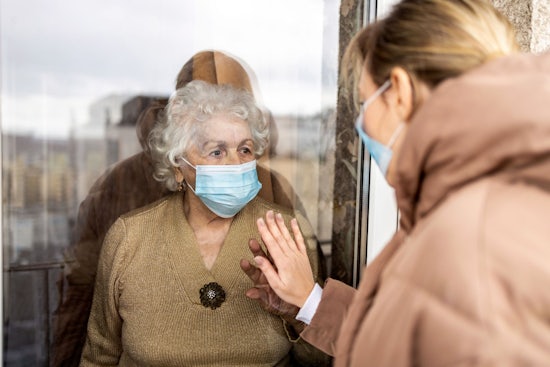Digital mental health support program to combat depression at home
Swinburne University of Technology and home care provider Silverchain have been hard at work on a new project which will offer older Australians a digital way to combat symptoms of depression.

Image via Shutterstock
Swinburne University of Technology and home care provider Silverchain have been hard at work on a new project which will offer older Australians a digital way to combat symptoms of depression.
The new project e-EMBED — which stands for ‘Electronic Enhanced Management of Home-Based Elders with Depression’ — is a program aimed at supporting more than a million Australians who receive home care.
The e-EMBED program was designed to improve in-home care and the quality of life for those who receive it, through the digital delivery of effective mental health strategies.
It is estimated that up to half of the older people who choose to receive in-home care are prone to develop or experience symptoms of depression, without the means to receive adequate mental health support.
e-EMBED has received funding from Aged Care Research and Industry Innovation Australia (AARIA), in order to change that.
Through the self-guided use of e-EMBED, more home care recipients will have access to a wide range of support services and channels which can put them in touch with a clinician.
Silverchain Director of Research Discovery, Professor Tanya Davison says that this is the first digitally enabled mental health intervention which is tailored to in-home aged care.
“This program will enable older Australians to access evidence-based treatments and communicate effectively with a mental health clinician in the comfort of their own homes,” said Professor Davison.
e-EMBED will have a strong focus on user interface (UI) and user experience (UX), according to Swinburne clinical geropsychologist Professor Sunil Bhar, which will allow more people to find the program easy to use.
“The design of the final product needs to be carefully planned together with people with depressive symptoms based on their preferences, level of digital literacy, and comfort using technology to improve their health and wellbeing,” said Professor Bhar.
The project is the latest development in the joint research effort between the Swinburne University of Technology and Silverchain, with earlier studies revealing the need for and interest in digital mental health accessibility.
“The next step is to develop and pilot the digital psychological intervention for depression and evaluate its use in the home context,” he added.
“Our team will develop new tools to tailor digitally enabled approaches to meet the needs and preferences of individual older people,” said Professor Davison.
“This project demonstrates our commitment to be leaders in home care internationally, provide an evidence base for effective care and to improve the care we offer to more than 115,000 clients each year.”
Do you experience mental health struggles or symptoms of depression?
For resources and support, please contact Aged Care Guide on 1300 404 547 or read through a list of resources available by clicking the link here.










